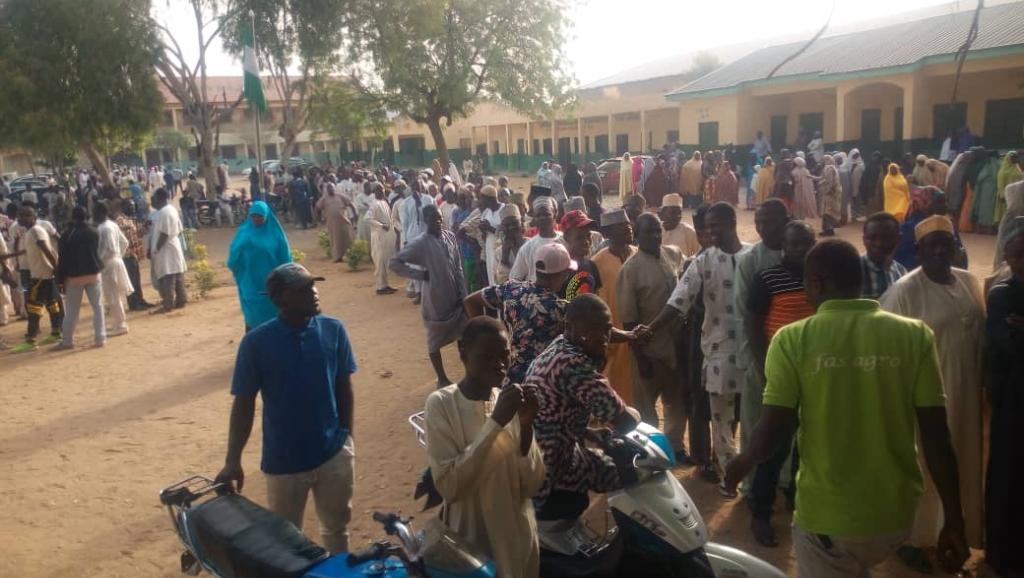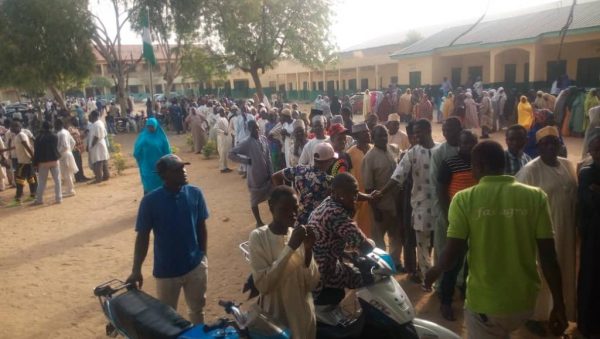Despite the initial setback of the elections which was postponed from February 16th to Saturday, February 23rd, people still came out enmasse to exercise their franchise. This was not only surprising to many who had envisaged low voter turnout, it was a sign that Nigerians were beginning to trust the electoral process once again.
Even when the Independent Electoral Commission (INEC) released the statistics of Permanent Voter Card (PVC) collection in states across the country, analysts were not only suspicious that the 78 million PVCs collected was an impossible and inflated figure they were skeptical of voter turnout based on the perceived tension renting the air. Official figures are yet to be out but an early estimation has put the voter turnout as huge and well above 50 percent. This alone is a good sign for our democracy.
On the other hand, it appears INEC is yet to finally conquer its jinxes with reports of so many polling units across the nation recording incidents of late setup. This greatly affected the time polls were closed with some polling units closing as late as 11:30pm. Polling materials were hijacked in some units while essential items were missing in some.
At my polling unit, the INEC Ad-hoc staff only arrived and began setting up just about 9:45am, and with less than 500 voters, we were lucky to conclude counting and all by 6:00pm. Surely, some polling units had it smooth while others had it very rough – some had Smart Card Reader (SCR) related delays while others were able to accredit easily with no hiccups from the SCR. Some voters in flashpoints such as in Lagos, Rivers, Akwa Ibom and so on were chased out of their polling units by hoodlums. There were suggestions these were politically motivated voter suppression strategies to upset the vote-count of some political parties. In other places, ballot boxes were not only snatched and burnt; a couple of voters were also killed and/or injured.
By a rough estimation, this would be the most violent election in recent time. It is arguable even, that the 2015 polls were more peaceful than this presidential and national assembly’s which we have had already. But there is only so much INEC itself as a body can do; it relied heavily on the police to provide security at polling units, it depended largely on National Union of Road Transport Workers (NURTW) to provide logistics support, it relied on inadequately trained ad-hoc staff to handle sensitive materials in sometimes very volatile locations. In any dysfunctional system, whatever could go wrong will go wrong – if any of the infrastructure being used for elections would not fail, INEC personnel themselves may choose to act selfishly.
And this is why up until now, even 48 hours after the polls began, no official results have been announced except for the ones announced at the State level for National Assembly. During the polls, no real-time updates or reports on situation across the country was presented except those by media houses and a few Civil Society Organisations (CSOs). The reality is a sign that we have not greatly improved on significantly in the electioneering process from what it was in 2015 till now.
All these indicates one thing, we still have a long way to go in the conduct of things as basic as the electoral process which is the major sustainer of our democracy. It would be a good time to review the Electoral Act even further.
Voters have shown now that they are ready to exercise their civic responsibility by choosing their leaders; this process must not be made more painful for citizens to bear. Both government, institution and citizen must ensure that is done.
It is high time INEC as a body had a sit-down internally and then with stakeholders comprising political parties, security agencies, logisticians, policy and development institutes, innovators and other relevant bodies and come up a holistic review of the most important enabler of our democracy after the constitution. We have to also collectively condemn and call for the prosecution of all desperate politicians and political parties who have in a way or another contributed to the incidents of voter suppression or violence which we witnessed across the country. Otherwise, with the unfortunate and disappointing incidents connected to this last election, voter apathy might begin to rise again.
Featured image source: RFI


